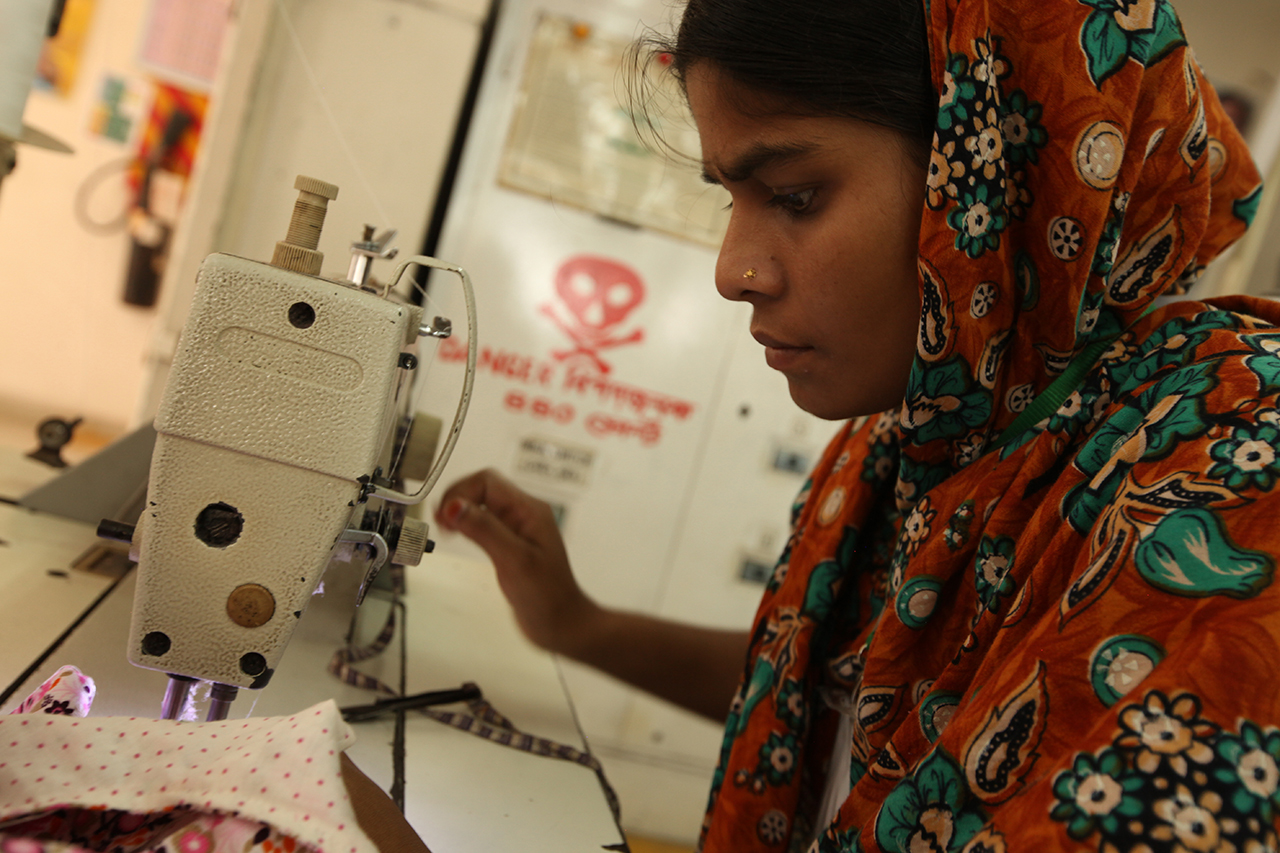
CCC condemns escalating repression of unionists amid wage strikes Bangladesh
Clean Clothes Campaign (CCC) is today raising concerns about the safety of trade union leaders and workers in Bangladesh, after a number of labour activists and workers were arrested on apparently arbitrary grounds. The arrests have come in the wake of a week of unrest, as thousands of workers in the Ashulia area of Dhaka went on strike to demand higher wages.
The strike, started on the 12th December, at the Windy Apparels factory - most recently in the news following the death of one its employees in October. The factory supplies a number of well know high street brands including H&M, Inditex (known for the brand Zara), Esprit, Tesco, Arcadia, S Oliver, and Debenhams. The strike spread over the following days to other factories in the Ashulia area. By the 20th December 2016 59 factories were closed, although many were shut down as a preventative measure by factory owners rather than by striking workers. The workers are demanding the implementation of minimum monthly wage of 15.000 BDT/ month (182 EUR). At the moment the minimum wage is 5.300 BDT, which was set in 2013 after the Rana Plaza collapse.
It is unclear how the strike started but it is generally acknowledged that it was not a coordinated action and none of the major trade union federations have endorsed the strike. At a number of press conferences trade union leaders have instead urged workers to return to work, while recognizing that their concerns need to be dealt with by the government and employers. Despite this it appears the government is taking the opportunity to carry out a crackdown on trade unions, by threatening and arresting their leaders.
On the 21st December seven local labor leaders were detained following a meeting convened by the Industrial police, with at least one other leader arrested from his home. The seven taken at the meeting were brought to court late on the 22nd December and have been detained until a court hearing scheduled for Monday 26th December. It appears they have been arrested under the Special Powers 1974 Act, known as one of Bangladesh’s “black laws” which allows the government to arrest people on preventative detention. On the 22nd of December, two more union leaders from another garment production area were taken from their residence by a special police branch at 11:15 pm. The two had just completed a meeting with workers, and they have reported that they are being questioned regarding the strike and whether it will expand to Gazipur. At this writing, they have not yet been presented in court or formally charged.
Another labour leader, Moshrefa Mishu, was detained on the 22nd December as she arrived for a press conference, The police later claimed they had simply “invited her for tea” and she was released after a number of hours. Charges were also laid by a number of factories, including Windy Apparals and others against hundreds of workers, the majority of whom were not named in the charge sheet.
This is not the first time the Bangladesh government has used the pretext of worker unrest to attack trade union activists. In 2010, following a wave of strikes demanding an increase in the minimum wage, a number of trade union leaders were arrested and detained: all underwent physical and psychological abuse while in detention. One of those arrested at that time, Aminul Islam, was just over eighteen months later brutally murdered – those responsible have never been apprehended and there remains strong grounds for suspicion that security services were involved in his death.
The CCC views the latest surge of harassment against trade unionists and workers as an attack against legitimate labour organising and as an attempt to stop workers from raising their concerns about their poverty wages and horrendous conditions. We call on the Bangladesh government to halt this repression, ensure that those arrest are either released or are provided with proper due process and to drop the indiscriminate charges against hundreds of workers.
Brands sourcing from Bangladesh should support this position strongly to the Bangladeshi government, and make sure their suppliers do not engage in any retaliation against workers and unionists exercising their right to expression and association, and stop filing unsubstantiated criminal charges against workers. We also urge the government, employers and the brands sourcing from Bangladesh to prevent future industrial action by negotiating with worker to address their concerns, including by increasing the current minimum wage.